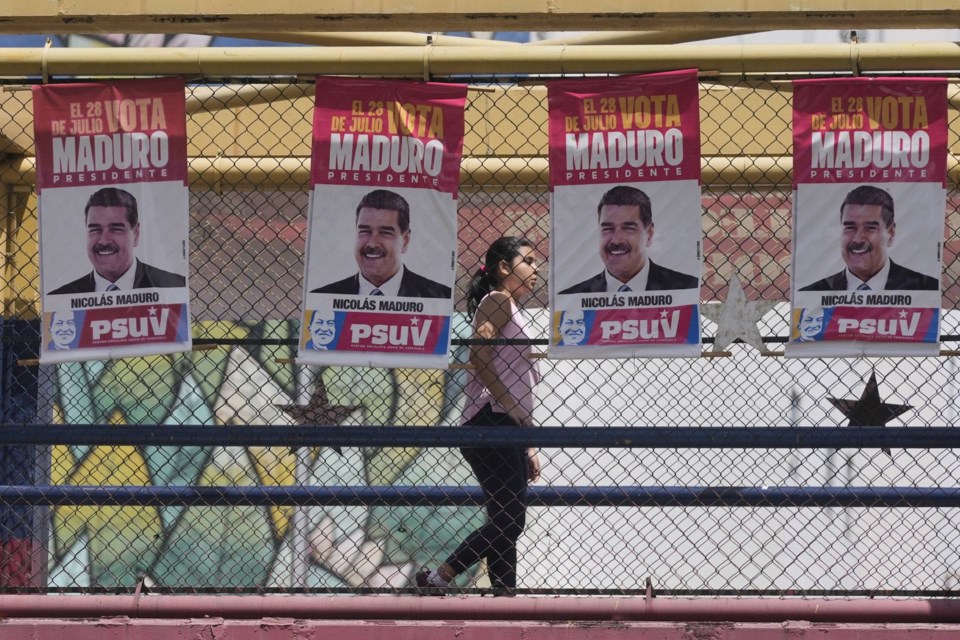OTTAWA — saąúĽĘ´«Ă˝ is calling on Venezuelan authorities to release detailed polling results of its presidential election, after autocratic President Nicolas Maduro and his opposition rival both emerged from the contest claiming victory.
Maduro, whose tenure since 2013 has been marred by an exodus of 7.7 million people fleeing hyperinflation and social unrest, warned this month of a possible "bloodbath" if he didn't win the election by a large margin.
After voting ended Sunday, the electoral council run by Maduro loyalists said he had secured 51 per cent of the vote.
His chief rival, opposition leader Maria Corina Machado, was ahead in the polls in the lead-up to the election. But a month before the vote, officials barred her from holding office because she voiced support for U.S. sanctions on the country.
Her successor, Edmundo Gonzalez, picked up where Machado left off and has been campaigning on her platform. He said in the wake of the vote that his team observed overwhelming success in voting tallies.
On Monday afternoon, Global Affairs saąúĽĘ´«Ă˝ called on Venezuelan authorities to "respect the will of the people" and to publish detailed results for all polling stations.
The Conservatives made similar demands, in a news release published moments after the department's statement on social media.
"saąúĽĘ´«Ă˝ should only recognize a democratic vote if it is truly free and fair," wrote Tory Leader Pierre Poilievre, who rarely issues press releases on foreign policy.
"The government of saąúĽĘ´«Ă˝ must do everything in its power to support the people of Venezuela as they fight for freedom and real democracy in their country."
Earlier on Monday, Deputy Prime Minister Chrystia Freeland said Ottawa was partnering with like-minded countries on the issue, without specifying what that involves.
"saąúĽĘ´«Ă˝, like many of our other allies, like many of the world's democracies, has serious concerns about the election in Venezuela, and we're working closely with our partners," she told reporters at an unrelated press conference in Toronto.
"It takes real courage to stand up for democracy in the face of an authoritarian regime. Millions of people in Venezuela have been doing that."
Freeland was foreign minister when, after the last presidential election in 2018, the country's parliament disputed the contest's legitimacy and used a constitutional convention to recognize opposition leader Juan Guaido as president.
saąúĽĘ´«Ă˝ and the United States were among the countries to recognize Guaido, but Maduro ultimately maintained his power.
Despite large-scale protests over his administration taking place since 2014, he has said he enjoys popular support that foreign governments have failed to undermine.
Venezuela sits atop the world’s largest oil reserves and once boasted Latin America's most advanced economy.
After Maduro took the helm, it tumbled into a free fall marked by plummeting oil prices, widespread shortages of basic goods and hyperinflation of 130,000 per cent.
This report by The Canadian Press was first published July 29, 2024.
— With files from The Associated Press/
Dylan Robertson, The Canadian Press



